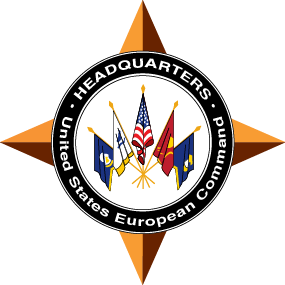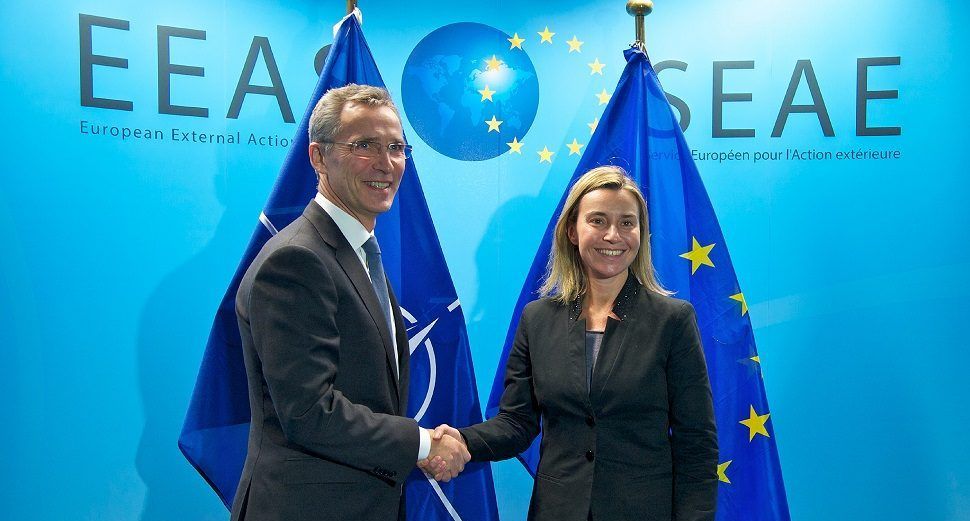
Summary
In the final decades of the 20th century, transatlantic bonds on security and defence were strong. Broadly speaking, support between allies within NATO was unquestioned. But in recent years global security and instability has brought about a new era in the transatlantic relationship.
“The old concept of regional security has given way to a 21st-century concept more geopolitical in nature,” noted Giles Merritt, Founder and Chairman of Friends of Europe. “Europe and America are keen on stability, and that means working together on a super-regional level.”
“The continuing instability in the Middle East and North Africa and the effects of this instability on Europe is a major transatlantic security challenge,” stressed Magnus Nordenman, Director of the Transatlantic Security Initiative and Deputy Director of the Brent Scowcroft Center on International Security at the Atlantic Council of the United States.
The joint declaration that came out of the 2016 NATO Summit in Warsaw underlined that EU member states and NATO allies must work more closely together in the face of shifting regional and geopolitical priorities in the world.
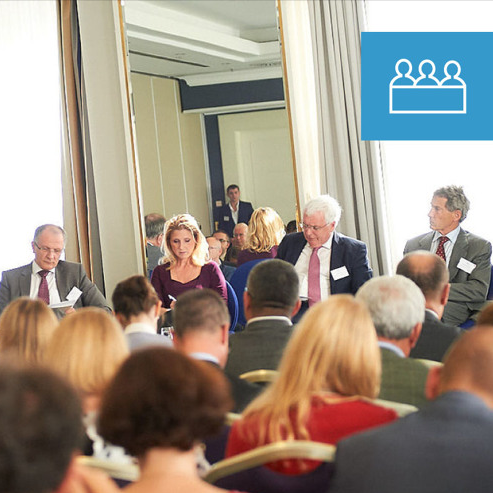
Event recording
Transatlantic cooperation and Europe's Southern neighborhood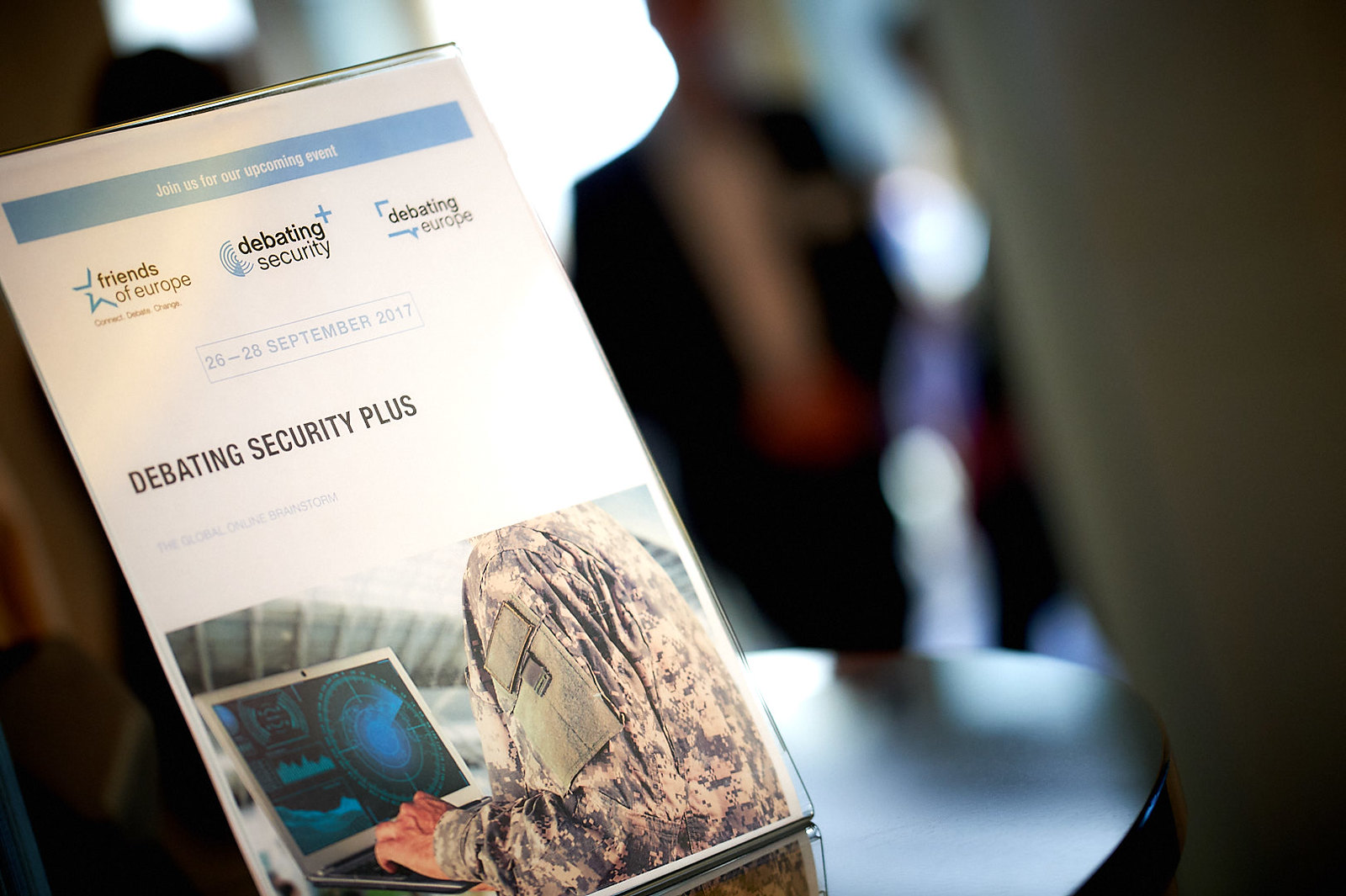
Should you not be able to view the gallery, please click here.
About
Europe and NATO face an array of strategic and complex security challenges to the South. Ongoing instability emanating from the Middle East and North Africa – including state failure, civil conflict, and a new wave of deadly terrorism – continue to pose threats to European security. Massive migration and refugee flows, coupled with political upheavals on both sides of the Atlantic, have stoked tensions and exacerbated divisions across the transatlantic community. At the same time, the evolving security environment in Europe’s east has diverted attention, highlighted competing priorities, and hampered international responses to the multifaceted challenges in the south.
In this context, the transatlantic community must develop coordinated strategies to address these issues. Could Europe’s southern neighbourhood be the much-needed catalyst to strengthen the transatlantic relationship on the one hand, and EU-NATO cooperation on the other? How should the EU and NATO share the burden in practice to address key issues such as terrorism or maritime security? Would this mean an expanded role for NATO, and if so, how likely are its member nations to support it? How can the EU and NATO work with nations in the region and other regional and international organizations to build resilience, respond to crises, and promote stability?
IMAGE CREDIT: CC/Flickr – European External Action Service
Schedule
Opening remarks by
Magnus Nordenman
Director of the Transatlantic Security Initiative and Deputy Director of the Brent Scowcroft Center on International Security at the Atlantic Council of the United States
Giles Merritt
Founder of Friends of Europe
Speakers include
Michael Ryan
Former deputy assistant Secretary of Defence for European and NATO policy at the United States Department of Defense, Trustee of Friends of Europe and lecturer on world affairs and Russian history
Teri Schultz
Freelance Reporter for NPR and Deutsche Welle; Podcast Host, Atlantic Council
Jamie Shea
Senior Fellow for Peace, Security and Defence at Friends of Europe, and former Deputy Assistant Secretary General for Emerging Security Challenges at the North Atlantic Treaty Organization (NATO)
Stefano Stefanini
Non-resident Senior Fellow at the Atlantic Council Transatlantic Security Initiative, former Permanent Representative of Italy to NATO
Moderated by
Pauline Massart
Former Deputy Director for Security and Geopolitics at Friends of Europe and Vice-President of WIIS - Women in International Security, Brussels
Speakers

Director of Crisis Management and Planning Directorate (CMPD) of the European External Action Service (EEAS)
Since beginning his career with the Hungarian Foreign Service, Gábor Iklódy has built up a distinguished record in security policy and multilateral diplomacy, a large part of which he devoted to Euro-Atlantic integration. In his current capacity, he oversees integrated civilian-military strategic planning in the areas of maritime security, EU peacekeeping and humanitarian missions and operations. Previously, Iklódy served as NATO Assistant Secretary General for Emerging Security Challenges, responsible for the development and delivery of the Alliance’s approach to cyber defence, counter-terrorism, WMD non-proliferation and energy security.

Former Deputy Director for Security and Geopolitics at Friends of Europe and Vice-President of WIIS - Women in International Security, Brussels
Pauline Massart leads Friends of Europe’s Peace, Security and Defence pillar, developing the work programme, projects and partnerships on global peace, security and defence issues. She has spearheaded projects such as the think-tank’s global cyber-scorecard and Friends of Europe’s global online brainstorm which gathers thousands of security experts from across the globe. Massart is also Vice-President for Operations and Outreach of WIIS – Women in International Security Brussels.

Founder of Friends of Europe
Giles Merritt is the Founder of Friends of Europe, and was its Secretary General between 1999 and 2015, and its Chairman between 2016 and 2020.
A former Financial Times Brussels Correspondent, Giles Merritt is a journalist, author and broadcaster who has for over four decades specialised in European public policy questions. In 2010 he was named by the Financial Times as one of its 30 most influential “Eurostars”, together with the European Commission’s President and NATO’s Secretary General.
Giles Merritt joined the Financial Times in 1968, and from 1972 until 1983 he was successively FT correspondent in Paris, Dublin/Belfast, and Brussels. From 1984 to 2010 he was a columnist for the International Herald Tribune (IHT), where his Op-Ed page articles ranged widely across EU political and economic issues.
In 1982 he published “World Out of Work”, an award-winning study of unemployment in industrialised countries. In 1991, his second book “The Challenge of Freedom” about the difficulties facing post-communist Eastern Europe was published in four languages. His book “Slippery Slope: Europe’s Troubled Future” (Oxford University Press 2016), was shortlisted for the European Book Prize.
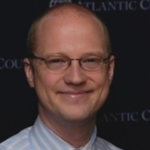
Director of the Transatlantic Security Initiative and Deputy Director of the Brent Scowcroft Center on International Security at the Atlantic Council of the United States
Magnus Nordenman leads and manages the Scowcroft Center’s projects and programming related to transatlantic security, the future of NATO, Nordic-Baltic defence, and maritime issues. An expert in his field, he has provided advice and insights to both the US government and NATO. Before joining the Atlantic Council, Nordenman worked as a defence analyst, focusing on the US defence budget, US foreign basing, the unmanned vehicles market and current US military operations. He is also the author of two recent reports: “NATO in an era of global competition” and “The naval alliance: preparing NATO for a maritime century”.

Freelance Reporter for NPR and Deutsche Welle; Podcast Host, Atlantic Council
Teri Schultz is a Brussels-based freelance reporter covering the European Union and NATO for National Public Radio, CBS Radio News and Germany’s public broadcaster Deutsche Welle. Throughout her long career in journalism, she has worked as the State Department reporter for Fox News Channel, a Knight International Press Fellow at the International Center for Journalists, and a freelance television reporter for Reuters, CNN and the Finnish Broadcasting Company. Schultz has a particular interest in Afghanistan, to which she has made six reporting trips.
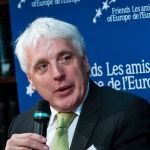
Senior Fellow for Peace, Security and Defence at Friends of Europe, and former Deputy Assistant Secretary General for Emerging Security Challenges at the North Atlantic Treaty Organization (NATO)
Retiring from NATO in September 2018 after 38 years at the organisation, Jamie Shea has occupied a number of senior positions at NATO across a wide range of areas, including external relations, press and media, and policy planning. As NATO’s spokesperson, he was the face of the alliance during the Bosnia and Kosovo conflicts. He later worked as the director of policy planning in the private office of former secretary general Rasmussen during the preparation of NATO’s 2010 Strategic Concept. Shea is also a regular lecturer and conference speaker on NATO and European security affairs.
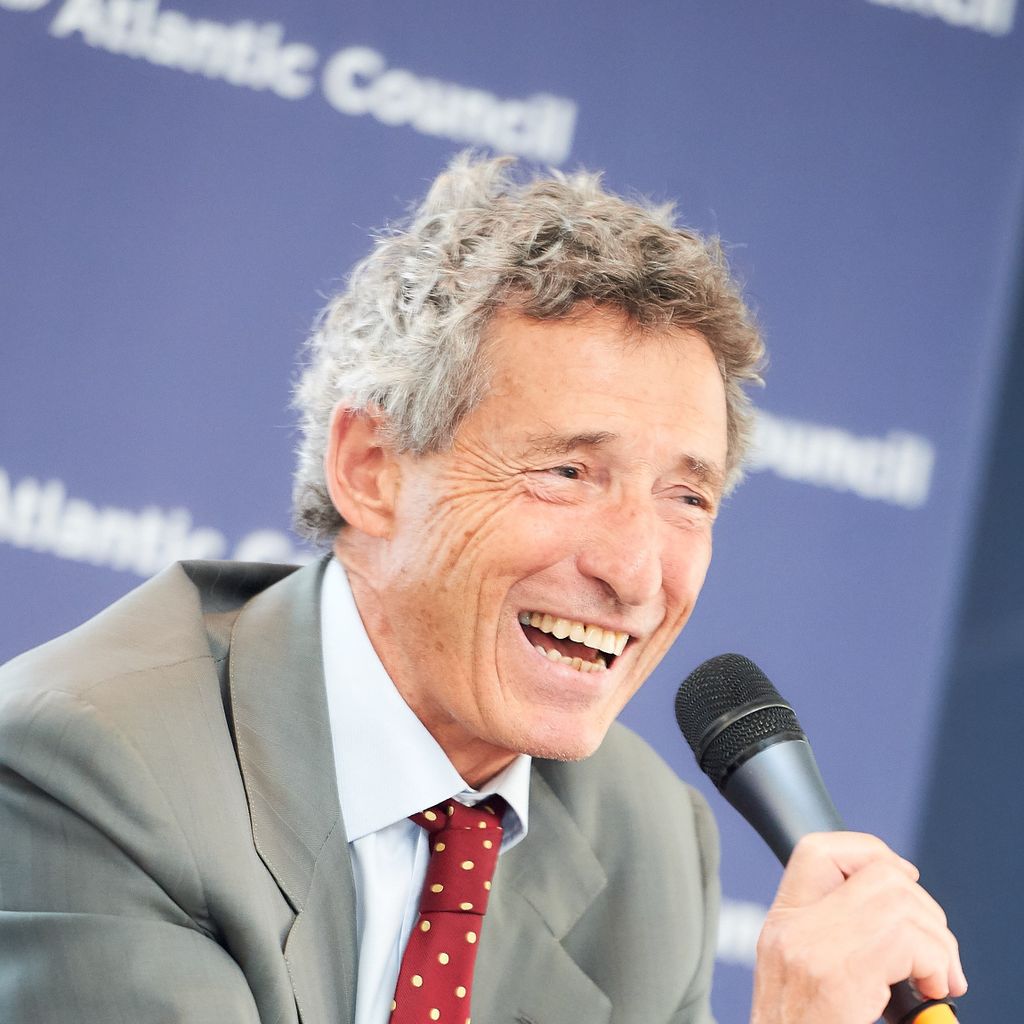
Non-resident Senior Fellow at the Atlantic Council Transatlantic Security Initiative, former Permanent Representative of Italy to NATO
Ambassador Stefano Stefanini’s long diplomatic career has earned him a reputation as a distinguished expert in transatlantic affairs, international security, defense industry, and Western and European relations with Russia. He has held various high-level positions such as: diplomatic adviser to the then-President of Italy, Giorgio Napolitano; Permanent Representative at NATO where he contributed to the drafting of NATO’s 2010 Strategic Concept, and deputy chief of mission at the Italian Embassy in Washington. He has also previously served at the United Nations in New York and Moscow. Ambassador Stefanini is a recipient of the Grand Cross of the Order of Merit of the Italian Republic and has received honors from several foreign governments.
Partners
Coorganized with
Activities
From ambition to action: building Europe’s Defence Union
Next event In person

- Area of Expertise
- Peace, Security & Defence
EU-Western Balkans Summit: Enlargement matters – Europe’s new…
Next event

- Area of Expertise
- Peace, Security & Defence
Frontline Voices: renewing the women, peace and security agenda
Past event Online

- Area of Expertise
- Peace, Security & Defence
Frontline Voices: diagnosing the disconnect – The Women, Peace and…
Past event Online

- Area of Expertise
- Peace, Security & Defence
Living in a perpetual state of emergency
- Category
- #CriticalThinking
- Author
- By Jamie Shea
Beyond sanctions: five strategic tools the EU must use to end the war in…
- Category
- #CriticalThinking
- Author
- By Liel Maghen
Israel sets a bad precedent for future wars
- Category
- #CriticalThinking
- Author
- By Jamie Shea
EU-NATO relations: time to step up a gear (or two)
- Category
- #CriticalThinking
- Author
- By Jamie Shea

- Area of Expertise
- Peace, Security & Defence

- Area of Expertise
- Peace, Security & Defence
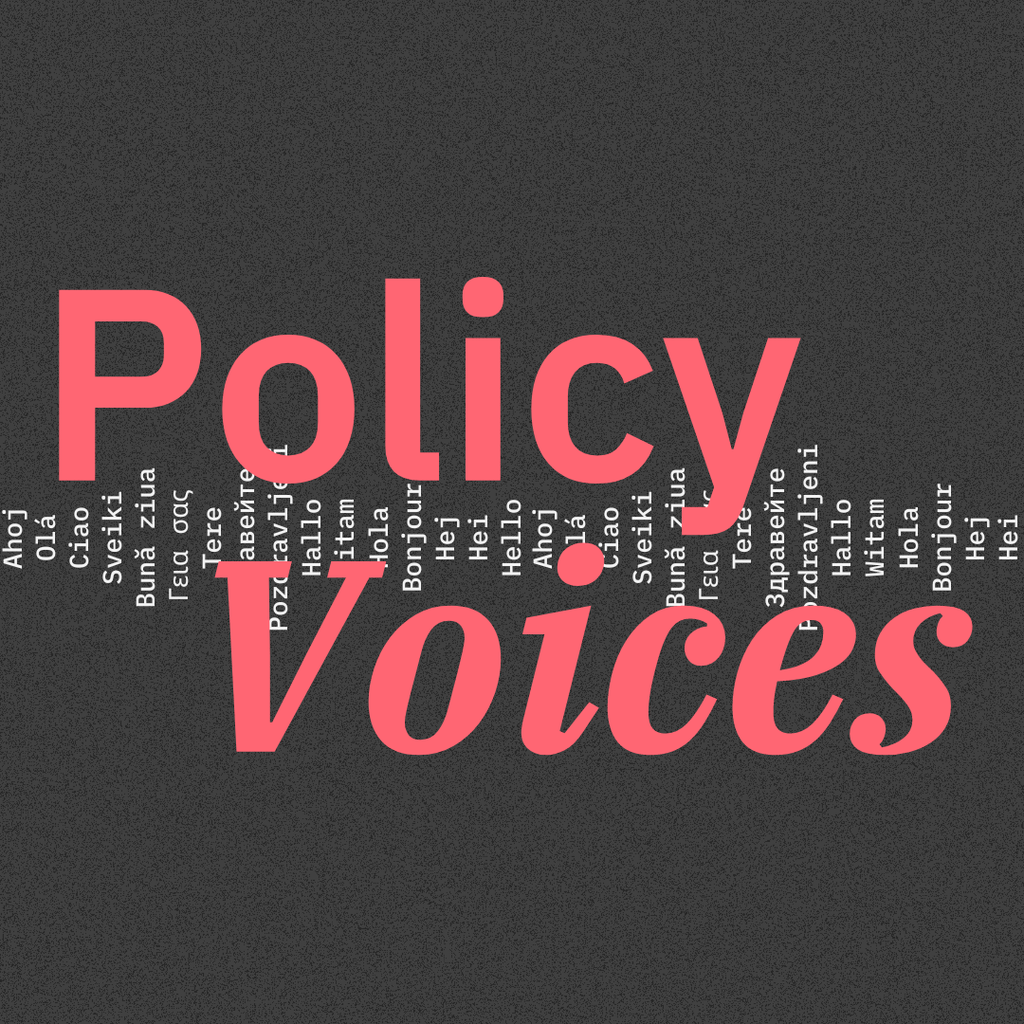
- Area of Expertise
- Peace, Security & Defence
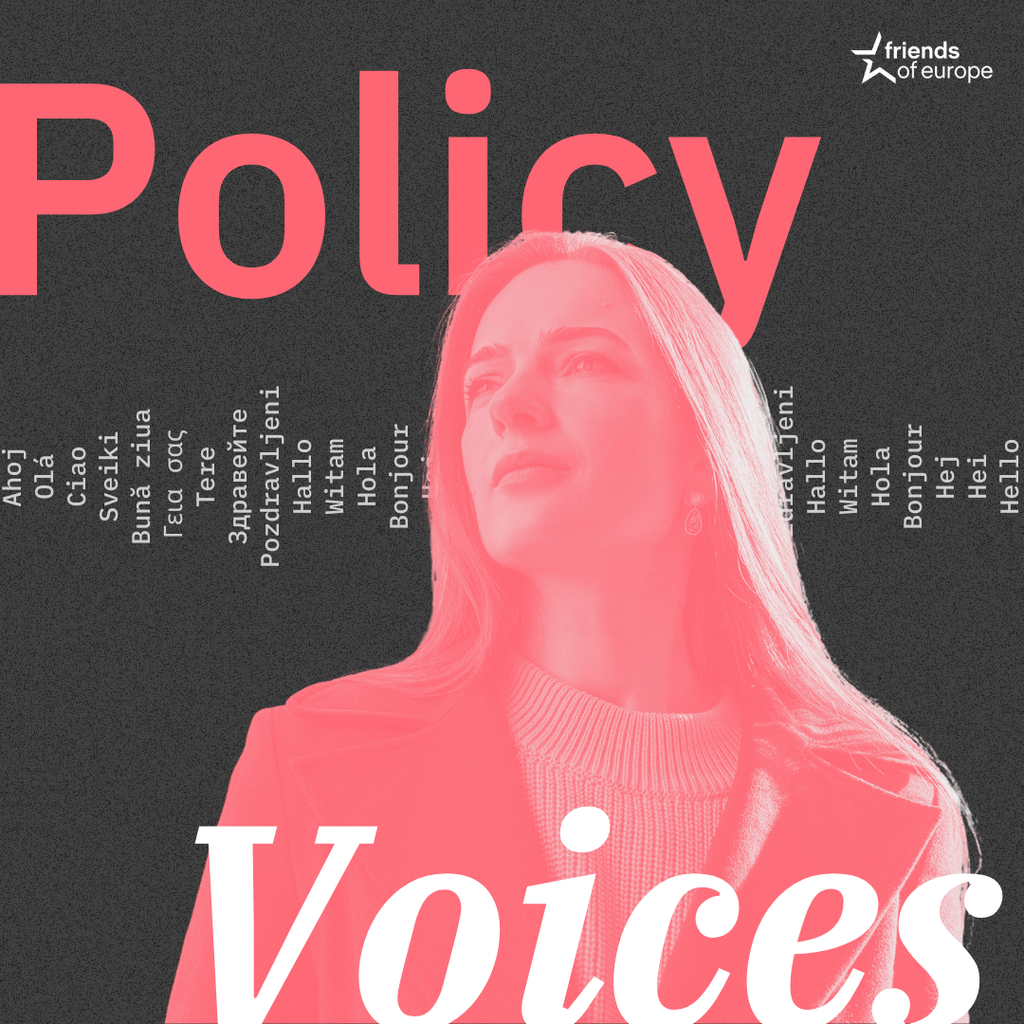
- Area of Expertise
- Peace, Security & Defence
Continue
the debate on
- Debating Europe
